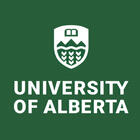- News and articles
- Find usIDP AustraliaIDP BahrainIDP BangladeshIDP CambodiaIDP CanadaIDP ChinaIDP EgyptIDP GhanaIDP Hong KongIDP IndiaIDP IndonesiaIDP IranIDP JordanIDP KenyaIDP KoreaIDP KuwaitIDP LebanonIDP MalaysiaIDP MauritiusIDP Middle EastIDP NepalIDP New ZealandIDP NigeriaIDP OmanIDP PakistanIDP PhilippinesIDP Saudi ArabiaIDP SingaporeIDP Sri LankaIDP Taiwan, ChinaIDP ThailandIDP TurkeyIDP UAEIDP VietnamIDP Corporate
- Social
- English
- Where we operate
- Courses
- Scholarships
- IELTS
- About IDP
- Student Essentials
- News and articles
- Find us
- Find us
- Find nearest IDP offices
- IDP Australia
- IDP Bahrain
- IDP Bangladesh
- IDP Cambodia
- IDP Canada
- IDP China
- IDP Egypt
- IDP Ghana
- IDP Hong Kong
- IDP India
- IDP Indonesia
- IDP Iran
- IDP Jordan
- IDP Kenya
- IDP Korea
- IDP Kuwait
- IDP Lebanon
- IDP Malaysia
- IDP Mauritius
- IDP Middle East
- IDP Nepal
- IDP New Zealand
- IDP Nigeria
- IDP Oman
- IDP Pakistan
- IDP Philippines
- IDP Saudi Arabia
- IDP Singapore
- IDP Sri Lanka
- IDP Taiwan, China
- IDP Thailand
- IDP Turkey
- IDP UAE
- IDP Vietnam
- IDP Corporate
- Social
- Language Switcher
- IDP Education /
- Colleges and Universities /
- Canada /
- University of Alberta /
- Doctor of Philosophy in Psy...


Location
Canada
Qualification
Ph.D.
Fees
CAD9406
(2025)
Duration
3 Year(s)
Next intake
08 September 2025
Entry Score
6.0
IELTSCourse info
The Department of Psychology at the University of Alberta is committed to an equitable, diverse, and inclusive environment. We welcome applications from all qualified persons. We encourage women; First Nations, Métis, and Inuit persons; members of visible minority groups; persons with disabilities; persons of any sexual orientation or gender identity and expression; and all those who may contribute to the further diversification of our Psychology program.
Spatial Cognition & Navigation - is concerned with how animals find, remember, and navigate to places, and how they recognize objects and scenes. Researchers in comparative cognition study spatial processes in animals ranging from insects to humans.
Neuroethology of Social Behaviour - we study how the process of sexual differentiation contributes to the development of individual differences in social behaviour. Researchers are interested in personality-like differences between members of a species, their underlying neuroendocrinological basis, and the development of sex differences may be involved.
Songbird Neuroethology - deals with songbird vocal production and perception. Researchers are interested in mechanisms of vocal production and perception, along with the effects of the early acoustic environment on adult vocal productionperception, and underlying neural substrates.
Individual differences in asocial and social learning - we have a broad interest in animal behaviour, with a particular focus on how learning and cognitive abilities allow animals to solve problems they face in the wild (e.g., foraging, vocal recognition of conspecifics, how to know what nest to build). We investigate the causes and consequences
- Scholarships View all scholarships
- Internships
Entry requirements for University of Alberta
Close match of research interests with one or more faculty members
Grade point average of 3.0 or better in last two years or equivalent of study
Upload transcripts from all post-secondary institutions you have attended
Prepare a C.V
Prepare a statement of research interests
When primary language is not English, either:
a satisfactory score on the TOEFL (minimum total score of 88 on the iBT with a score of at least 20 in each skill area) or another approved English language examination
or, baccalaureate degree or its academic equivalent from a recognized institution, in which the language of instruction is English
The Graduate Record Examination (GRE) is a requirement for admission to the graduate program. This requirement can be waived with the explicit written consent of the applicant's potential supervisor(s). In the absence of the supervisor's consent, applications lacking GRE scores will be considered incomplete
Application Deadline
The application deadline isn't available Speak to an IDP counsellor for more detailed information
Further information
If you aren't eligible for the above entry requirements, you might ant to explore pathway options at University of Alberta. If you want to find out more, speak to our counsellors.
THE World Ranking
116th / 1250
THE World RankingWhat our students think
We’ve haven’t received any reviews for this institution yet.
Recommended for you
- THE World Ranking:116
- Ph.D.
- Edmonton , Canada
- Next intake:05/2025
- Entry Score: IELTS 6.5
- CAD9406 (2025)
- THE World Ranking:116
- Ph.D.
- Edmonton , Canada
- Next intake:05/2025
- Entry Score: IELTS 7.0
- CAD9406 (2025)
- THE World Ranking:501
- Ph.D.
- Ottawa , Canada
- Next intake:05/2025
- Entry Score: IELTS 6.5
- CAD15465 (2025)
- THE World Ranking:501
- Ph.D.
- St. Johns , Canada
- Next intake:05/2025
- Entry Score: IELTS 6.5
- CAD4497 (2025)
- THE World Ranking:116
- Ph.D.
- Edmonton , Canada
- Next intake:05/2025
- Entry Score: IELTS 7.0
- CAD9406 (2025)
- THE World Ranking:116
- Ph.D.
- Edmonton , Canada
- Next intake:05/2025
- Entry Score: IELTS 7.0
- CAD9406 (2025)
- THE World Ranking:116
- Ph.D.
- Edmonton , Canada
- Next intake:05/2025
- Entry Score: IELTS 7.0
- CAD9406 (2025)
- THE World Ranking:501
- Ph.D.
- St. Johns , Canada
- Next intake:05/2025
- Entry Score: IELTS 6.5
- CAD4497 (2025)
Your action plan
Step 1
Shortlist your courses
Choose the best three courses you’re most likely to pursue.
Step 2
Check your eligibility
Get an instant in-principle offer for courses with the IDP FastLane tag.
Step 3
Apply through IDP Live
Fill out the form once and use it to apply to multiple courses.
How does IDP FastLane work?
With the FastLane 'Offer in Principle', you'll know in minutes if you'll be accepted!
Select an institution and course
Create your academic profile
Submit your application for an 'Offer in Principle'
Your chosen institution(s) will send you a decision in minutes!
Get ready to apply with an expert counsellor




